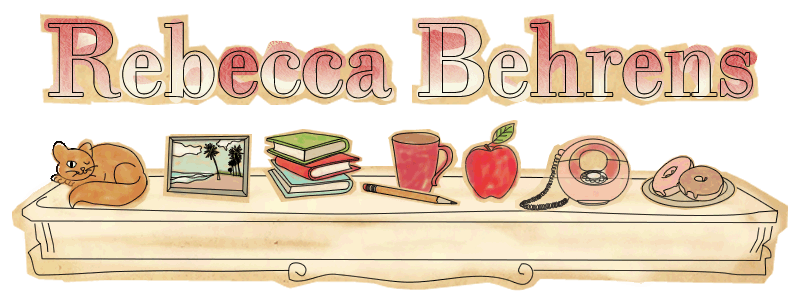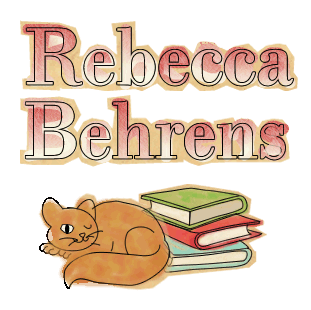


Why we need to teach fiction
I’m pretty familiar with the Common Core standards, at least the English Language Arts ones, thanks to my day job. [Warning: I will now dabble in curriculum babble for approximately 4 sentences. And then I will stop.] Overall, I think it’s a good idea to standardize across the country what’s taught at certain grade levels and to make sure that really important reading and mathematics skills are covered. One thing that really bugs me about the Common Core, though, is that the standards de-emphasize reading fiction in favor of reading informational texts and nonfiction. The rationale is that reading informational texts better prepares kids for future testing and future employment. Fiction-reading skills aren’t seen as essential to compete in the academic and business world. Fiction is treated kinda like leisure reading, and nonessential. Not that there’s anything wrong with leisure reading–but fiction is so much more than that.
Julia Steiny wrote an essay for the Providence Journal about this issue and shared her thoughts on why fiction holds as many real-life benefits for students–read her essay here. She makes some great points, like the reason why her teachers all taught classical fiction in their classrooms:
TRUE!
Steiny’s article made me think about what reading (not to mention writing) fiction has taught me:
What has fiction taught you?
You are not like Milli Vanilli.
How many of you writers have found yourself thinking any of the following:
- I only got an agent/got published/won an award because of luck, or because I wrote the right thing at the right time.
- So what if I wrote that book, now I have to write another. And it has to be better.
- I can’t believe nobody has picked up on the typos in Chapter 7 or that terrible passage I didn’t cut in Chapter 19. Eventually, someone will and then they’ll all see what a hack I am.
- I didn’t deserve to get so much praise for that book/attract the attention of some agents/get published. What I do isn’t half as good as writers X, Y, and Z. It’s not even a thimbleful as good.
- If [insert your favorite writer here] had written what I wrote, maybe then it would be decent.
- I’m not a *real* writer.
Persistent self-doubting thoughts might be fleeting bouts of insecurity, or they might be a sign that you’re suffering from impostor syndrome. Which is a real thing:
Do You Have the Imposter Syndrome?
Imposter Syndrome–Feeling Like a Fraud
[Note: Apparently “impostor” and “imposter” are both accepted spellings? Merriam-Webster was a little confusing on this one.]
I should know. One of the speakers at my grad-school orientation gave lecture about the dangers of the impostor syndrome in academia. Sitting in the audience, after a couple of stress-filled days in which my internal mantra was What the hell am I doing here?!?!, I had an impostor-syndrome epiphany: You mean I’m not the only person who feels this way? Who thinks that eventually everyone else in my department will figure out that I’m the village idiot who slipped through the admissions cracks? Apparently, I was not.
It’s easy to slip into impostor thought patterns as a writer. It’s easy to overlook the laudable and successful things you’ve done (no matter what stage of the publishing process you’re at) and write them off as flukes, luck, frauds. If you ever receive a compliment for your writing and your response begins with but/actually/no, I really just/or some other modifier instead of “Why, thank you. That’s so wonderful to hear”–congrats, you’re acting like someone who thinks s/he is an impostor.
Being humble is good. Being realistic is good. Knowing your strengths and weaknesses is good. Being open to criticism that makes you grow and evolve and improve is good. Thinking that you are an impostor is bad. It’s not productive, just stressful.
If you write, you are a writer. If you’ve experienced success, you most likely deserved it. Ignore impostor-y thoughts and focus instead on enjoying the writing process, which always involves occasional mistakes, usually followed by growth and improvement.
Girl you know it’s true: you are not like Milli Vanilli.
Revision Trick: Wordle
Before I started inputting my hard-copy edits Saturday, I decided to make a Wordle of my MS. (Yes, I was procrastinating.) Copying my entire 70K MS to the clipboard and pasting it into the Wordle maker almost killed my computer, which was probably EXTREMELY STUPID to do, especially because I didn’t save the file or anything beforehand. But I lucked out, my geriatric MacBook regained its footing, and I got this cool Wordle out of it:
My mom is my biggest . . . critic?
I love getting comments from beta readers. In particular, I love getting comments from my mom as a beta.
Anyway, I got some comments on my revisions from her this weekend. This page cracked me up because, well, it’s my mom’s note:
People are going to turn around and look up
I was at the Happiest Place on Earth on Monday, and it occurred to me that Disneyland is sort of live-action fiction. You wander through all of these very detailed, distinctive fictive neighborhoods, waiting in line to get on rides that simulate space or fairytale lands or somewhere under the sea (cue Sebastian), etc. The whole park is actually built above ground level–you’re walking over a series of tunnels that “cast members” use to travel to and from the different lands (in order to preserve the magic element of the park). I think the word for it is verisimilitude: everything has the appearance of truth but isn’t really true. It can feel a little like walking through a book.
But even if you immerse yourself totally in the experience, it’s easy to get to reminded that what’s going on around you isn’t real. All you have to do is turn around (or look up at the rafters) and you see carefully concealed emergency exits, strings of lights, security cameras, animatronic ghosts and pirates and animals repeating the same canned movements. Most rides depend on the rider keeping his or her butt in the seat (and hands safely inside the ride at all times!), facing forward, never turning to look back behind. Of course, people do turn around and look up.
 |
| I am clearly not “waiting for something to happen” here. |
Not all works are striving for verisimilitude with the real world, but whatever environment you are creating should be as seamless as possible. You want your reader to believe in its authenticity. Whether you’re building the world of a suburban high school or the kingdom of the Mer-people, remember that your readers will be looking in all directions.
Running and Writing
I never do my best writing at my desk. I don’t even do it at the computer.
I write best when I’m running.
I get my best ideas while running. (Running outside, at least. When I’m running on the treadmill I can’t think anything other than God, I hate this. Can I stop yet? Please? This is torture.) It’s while I’m doing laps around the reservoir or traversing the park loop that all of the things I can’t seem to figure out about my characters or the plot or the setting get solved. Whatever the knotty issue is, it perfectly untangles while I’m running. I’ve always loved how running can be meditative and that it has a unique ability to help you organize your thoughts. It has always helped me get creative, but it wasn’t until I started writing that I realized what an incredible tool running is for a writer.
My only problem is that by the time I get back home and take a shower, I have often forgotten certain truths uncovered while on the path.
Solving that is tricky. Obviously, I don’t run while holding a laptop or a notepad. I suppose I could get a voice recorder and tape any important thoughts that come to me while running, but really–that’s kind of insane. (Sorry if anyone does actually narrate to a Dictaphone while jogging–no offense.) I think it would make running less productive, too. I highly suspect that part of the reason why running helps me think so well is that while I’m doing it, I can’t be checking my phone, responding to an email, glancing at the TV, hearing my neighbors play Grand Theft Auto, getting interrupted by the oven timer, etc. While running your body is consumed (i.e. distracted) by the activity, so as long as you don’t run into a tree (which I’ve done) or trip and fall (also have done) or get crapped on by a bird (yup) or realize that you have to pee really badly and there are no bathrooms for 3 miles (uh huh) or pull a tendon in your foot (also yup), your mind is free to wander and ponder.
So I try to jot down any epiphanies when I come in the door, and if something still gets forgotten, I know that I can always go for a run the next day. Feet permitting.
How a Book Used to Be Made
The Westing Game was my favorite books from fifth grade to–well, it’s still a favorite. If you haven’t read it, please go find a copy because it’s an amazing read.
I was perusing the [Cooperative Children’s Book Center] CCBC’s site today and unexpectedly discovered that they have an online archive of the manuscript of The Westing Game. Author Ellen Raskin donated her manuscript materials and provided audio and written commentary in 1978, around the time the book was published by Dutton. Her goal was to inspire those who used CCBC’s services, because she “often remarked during her career that she wished she had known ‘where children’s books come from’ while she was a young UW-Madison art student.”
I think this archive is really, really cool even if you don’t adore The Westing Game. The process Raskin describes for book production is very, very different from how it’s done today, so it’s a kick to see how publishing used to work. There are scores of her handwritten notes, outlines and planning (such as her notes on potential titles), research materials (such as a letter about Wisconsin Judges), marked-up drafts, and even her book cover designs. If you have any interest in manuscript history/the history of publishing, check it out! If you don’t care about book production, you still might be inspired by some of her methods for the writing process.
Rebecca Behrens, Author | Site content copyright © 2023 | Privacy Policy

